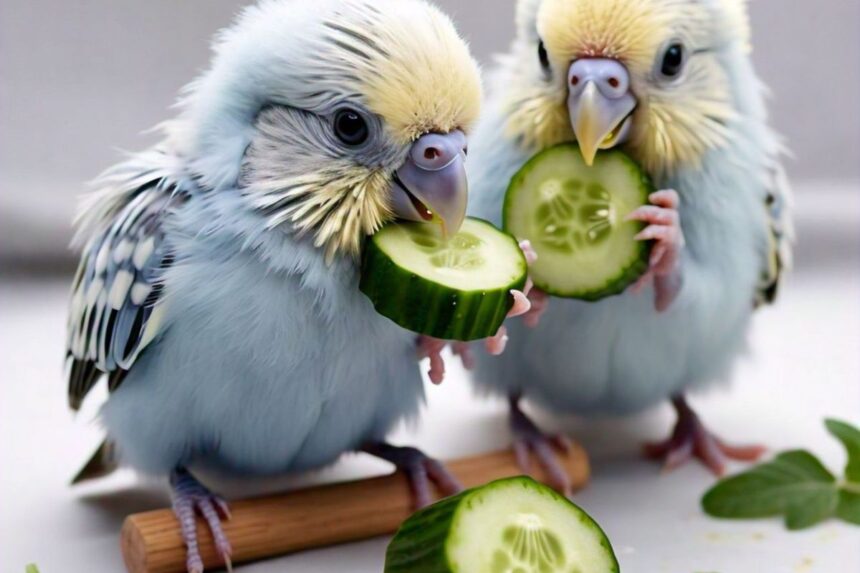What Do Budgies Eat? A Comprehensive Guide
Budgies, also known as parakeets, are delightful pet birds known for their vibrant feathers and cheerful chirping. To ensure your budgie stays healthy and active, it’s essential to provide a well-rounded diet that meets all their nutritional needs. In the wild, budgies eat a mix of seeds, fruits, and vegetables, which provides them with the necessary energy and nutrients. For pet budgies, replicating this natural diet with a combination of seeds, fresh produce, and pellets is crucial. This guide explores the different foods budgies can safely eat and what should be avoided to keep them happy and thriving.
Seeds: The Core of a Budgie’s Diet
Seeds form the foundation of a budgie’s diet and are often the primary component of commercial food mixes. They are an excellent source of energy, fats, and proteins, which are vital for your budgie’s health. However, a seed-only diet can lead to nutritional imbalances and deficiencies over time. To provide a balanced diet, seeds should be supplemented with fresh fruits, vegetables, and pellets. A high-quality seed mix specifically designed for budgies is recommended, as these usually contain a variety of seeds that cater to their dietary requirements. Always ensure the seeds are fresh and free from mold to avoid health issues.
Fruits Budgies Can Enjoy
Fruits are a nutritious and delicious treat for budgies, offering a variety of vitamins and antioxidants. For example, strawberries are a safe and healthy option for budgies, providing vitamin C and other essential nutrients. Make sure to wash fruits thoroughly before serving to remove any pesticides or chemicals. Another fruit budgies can enjoy is watermelon, which is hydrating and refreshing, especially during hot weather. However, the seeds must be removed to prevent choking hazards. Apples are another favorite, but always ensure the seeds are removed, as they contain trace amounts of cyanide. While fruits are beneficial, they should only make up a small portion of their diet to avoid excessive sugar intake. Learn more about offering fruits like strawberries here.
Are Tomatoes Safe for Budgies?
Tomatoes are a vegetable that budgies can eat in moderation, but caution is needed. While the juicy flesh of the tomato is safe and nutritious, containing vitamins A and C, the leaves, stems, and unripe fruit are toxic to budgies. When offering tomatoes, always ensure they are ripe and free from any green parts. Additionally, it’s best to serve tomatoes in small amounts as part of a varied diet to avoid potential acidity issues that can irritate your budgie’s digestive system. Providing a mix of vegetables ensures your bird receives the broad range of nutrients it needs for optimal health. For more information on feeding tomatoes to your budgie, visit this guide.
Vegetables: A Key to Balanced Nutrition
Vegetables are an essential part of a budgie’s diet, providing fiber, vitamins, and minerals that seeds alone cannot offer. Leafy greens like spinach and kale are excellent choices, as they are rich in nutrients and easy for budgies to eat. Carrots, whether raw or lightly steamed, are another favorite, packed with vitamin A to support eye health and vibrant plumage. Zucchini and broccoli are other great options, offering a mild flavor that many budgies enjoy. To keep your budgie interested, offer a variety of vegetables, rotating them regularly. Always wash vegetables thoroughly and chop them into small pieces to make them easier to eat.
Pellets: A Nutritionally Balanced Choice
Pellets are a convenient and nutritionally balanced food option for budgies, designed to supplement or even replace seed-based diets. These commercially prepared foods contain a mix of essential vitamins, minerals, and nutrients that may be lacking in seeds alone. Pellets can help prevent selective eating, ensuring your budgie consumes all the nutrients it needs. When introducing pellets to your budgie’s diet, do so gradually, mixing them with seeds to encourage acceptance. It may take time for your bird to adjust, but persistence is key. Remember, pellets should complement fresh produce, not replace it, to provide a truly balanced diet.
Hydration and Fresh Water
Providing clean, fresh water is just as important as feeding your budgie the right food. Budgies need water daily to stay hydrated and to support their metabolic processes. Make sure to clean their water dish regularly to prevent the growth of bacteria or algae, which can harm your bird. During warmer months, you may notice your budgie drinking more, as they need extra hydration in the heat. Some budgies enjoy playing or bathing in their water dish, which helps keep their feathers clean. Always use room-temperature water and ensure it is free from contaminants.
Toxic Foods to Avoid
While many foods are safe for budgies, there are certain items that should never be given to them. Foods like chocolate, avocado, and caffeine are toxic to budgies and can cause severe health issues or even death. Similarly, alcohol and salty snacks should be strictly avoided. Fruits like apple seeds and pits from cherries and peaches contain harmful substances and must be removed before serving. Additionally, avoid giving your budgie fried, processed, or sugary foods, as these can lead to obesity and other health problems. Being vigilant about your budgie’s diet ensures their safety and well-being.
Treats and Occasional Snacks
Budgies enjoy treats, and offering them occasionally can be a great way to bond with your pet. Millet sprays are a popular choice, loved for their taste and texture, but they should only be given in moderation due to their high calorie content. Honey sticks are another treat that budgies relish, but like millet, they should be reserved for special occasions. Fresh fruit pieces can also serve as treats, introducing variety to their diet while providing essential vitamins. Treats should never replace the main components of their diet but can be a fun and rewarding addition when offered sparingly.
Final Thoughts on Feeding Budgies
Feeding your budgie a balanced and varied diet is essential for their health, happiness, and longevity. A mix of seeds, fresh fruits, vegetables, and pellets ensures they receive all the nutrients they need to thrive. Remember to introduce new foods gradually, monitor your budgie’s preferences, and consult a veterinarian for guidance on their dietary needs. For more tips on caring for your budgie, visit Bird Queries, your go-to resource for bird enthusiasts. For more post visit here








